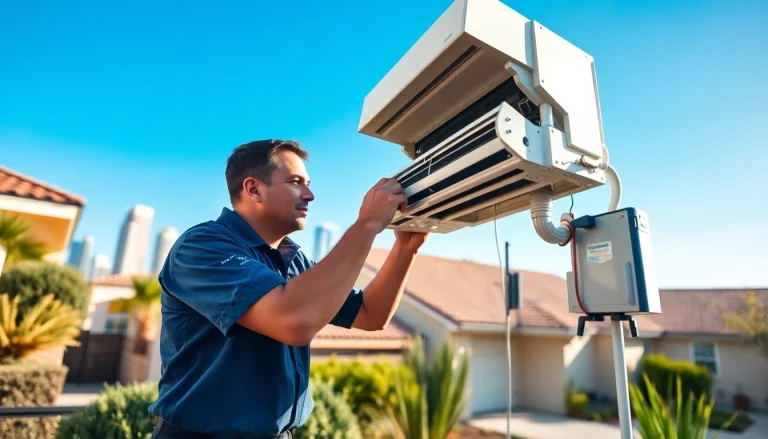Understanding the Role of a Traveling Notary
What is a Traveling Notary?
A traveling notary is a commissioned notary public who provides services outside of a traditional office setting. This type of notary travels to meet clients at their chosen locations, whether that’s at home, in a coffee shop, or at a place of business. The primary responsibility of a traveling notary includes witnessing signatures on documents, administering oaths, and performing other notarization tasks as required. With the growing demand for convenience and flexibility, traveling notaries fill a crucial niche in the notary industry.
Benefits of Using a Traveling Notary
Utilizing a traveling notary offers numerous advantages:
- Convenience: Traveling notaries bring their services directly to you, saving you time and effort by eliminating the need to travel to a notary office.
- Flexible Scheduling: Many traveling notaries accommodate clients’ schedules, providing services during evenings and weekends as needed.
- Personalized Service: The one-on-one interaction allows for a more tailored and comprehensive experience, often resulting in quicker resolution of notarial needs.
- Accessibility: Ideal for clients with mobility issues, busy schedules, or those living in rural areas where notary services may not be easily accessible.
How Does a Traveling Notary Operate?
Traveling notaries typically operate as independent contractors or as part of a larger notary service. Their operational model involves:
- Appointments: Clients can schedule appointments online or via phone. Traveling notaries should maintain a flexible schedule to meet client needs.
- Verification: Upon arrival at the appointment location, the traveling notary verifies the identity of the client through valid identification.
- Document Preparation: The notary reviews the documents to ensure all necessary information is present and that the documentation meets state requirements.
- Execution of Notarization: After thorough checks, the notary will administer oaths, witness signatures, and affix notary seals as required.
Choosing the Right Traveling Notary
Key Qualities to Look for in a Traveling Notary
When selecting a traveling notary, consider the following essential qualities:
- Experience: An experienced traveling notary is likely to have handled various documents and understand state-specific requirements.
- Reputation: Look for reviews and testimonials to gauge the notary’s reliability and quality of service.
- Communication Skills: A good notary should be able to explain the notarization process clearly and effectively, making sure the client understands every step.
- Flexibility: The best traveling notaries are adaptable, ready to accommodate last-minute requests and changes.
Common Mistakes When Hiring a Traveling Notary
Clients often make several errors when hiring a notary, which can lead to complications. Common mistakes include:
- Not Checking Credentials: Always verify that the notary is properly commissioned and licensed in your state.
- Ignoring Experience: Failing to consider experience can result in hiring someone who may not be familiar with complex documents.
- Overlooking Reviews: Neglecting to read reviews or testimonials can lead to hiring an inexperienced or unreliable notary.
- Assuming Availability: Not confirming a notary’s schedule beforehand can result in missed appointments or delays.
How to Verify the Credentials of a Traveling Notary
Verifying the credentials of a traveling notary is crucial for ensuring that your important documents are handled correctly. Here’s how to effectively validate them:
- Check State Websites: Most states have an online registry where you can search for licensed notaries.
- Request Documentation: Don’t hesitate to ask for a copy of the notary’s commission certificate and identification.
- Inquire About Training: Some notaries pursue additional training or certification; asking about their background can give you peace of mind.
- Seek References: Asking for references from previous clients can provide additional reassurance of their reliability.
Preparing for a Meeting with a Traveling Notary
Documents You Should Bring
Preparation can significantly expedite the notarization process. Here’s what to bring when meeting with a traveling notary:
- Valid Identification: Government-issued ID (like a driver’s license or passport) is essential for identity verification.
- Documents to be Notarized: Ensure all documents are complete and ready for notarization; do not sign them beforehand.
- Supporting Papers: Depending on the type of notarization, you may need additional documents to affirm your identity or authority.
- Payment: Prepare to cover the notary’s fees, often payable by cash or check, unless otherwise arranged.
Questions to Ask Your Traveling Notary
Asking insightful questions can help ensure that you receive the best service. Consider the following:
- What is your experience with this type of notarization?
- Are you familiar with the laws governing notarization in my state?
- How do you handle multiple documents or complex notarizations?
- What are your fees, and how do you prefer to be paid?
Understanding the Notarization Process
The notarization process is designed to prevent fraud and ensure that all parties are acting voluntarily and with full understanding. Here’s a quick overview of the steps involved:
- Identification: The notary verifies the identity of the signers through their valid ID.
- Review of the Document: The notary carefully examines the document to ensure it’s appropriate for notarization.
- Execution: The signer puts their signature on the document in the presence of the notary.
- Acknowledgment: The notary will then complete the notarization by adding their signature, seal, and date.
Cost and Fees of Traveling Notary Services
Factors Influencing the Cost of a Traveling Notary
The fees charged by traveling notaries can vary based on several factors, including:
- Geographic Location: Rates may differ depending on the region due to local market forces and demand.
- Type of Service: Complex notarizations may incur higher fees compared to standard services.
- Time of Appointment: Traveling notaries may charge more for appointments during evenings or weekends.
- Distance Traveled: Additional fees may apply for travel outside a specific radius from the notary’s base location.
Average Fees for Traveling Notary Services
While costs can vary widely, the average fee for traveling notary services typically ranges from $75 to $200. Specific fees to expect include:
- Standard Notarization: Generally, $10 to $25 per signature, depending on state laws.
- Travel Fees: Approximately $0.50 to $2.00 per mile traveled from the notary’s base.
- Additional Services: Fees for extra services, like document preparation or rush requests, can range from $25 to $75.
Negotiating Fees with Your Traveling Notary
It’s possible to negotiate fees with your traveling notary if you feel the quote is higher than expected. Here are some tips:
- Be Informed: Research local rates beforehand to understand the typical price range.
- Bundle Services: If you require multiple notarizations, ask for a bulk discount.
- Be Honest: If budget constraints exist, communicate openly and see if the notary can accommodate your needs.
- Offer Flexible Scheduling: Notaries may reduce fees for less busy appointment times.
Real-Life Scenarios for Using a Traveling Notary
Common Situations Where a Traveling Notary is Beneficial
Traveling notaries can provide invaluable assistance in various scenarios:
- Real Estate Transactions: Essential for signing mortgage documents and home sales.
- Wills and Trusts: Notary services are often needed for executing estate planning documents.
- Legal Agreements: Contracts or affidavits often require notarization for validity.
- Loan Signings: Many borrowers utilize traveling notaries to sign loan documents at their convenience.
Testimonial: Success Stories from Clients
Many clients have benefited significantly from using traveling notaries. Here are a couple of success stories:
James: “I was in a tight spot needing to sign my house closing documents while traveling for work. My traveling notary came to my hotel, made the whole process easy, and I was able to close on my new home without any issues.”
Emily: “As a busy single parent, finding time for notarizations was often impossible. However, having a notary come to my home during my kids’ nap time was a dream. It saved me so much hassle!”
Future Trends in Traveling Notary Services
The future of traveling notary services looks promising with evolving changes in the industry:
- Increased Digital Integration: With ongoing advancements in technology, more notaries are likely to adopt online scheduling and payment systems.
- Remote Notarization: As legislation adapts, remote notarization via video conferencing may become more commonplace.
- Expanded Services: Traveling notaries may begin offering ancillary services, such as document preparation and legal consultations, to provide even more value to clients.








